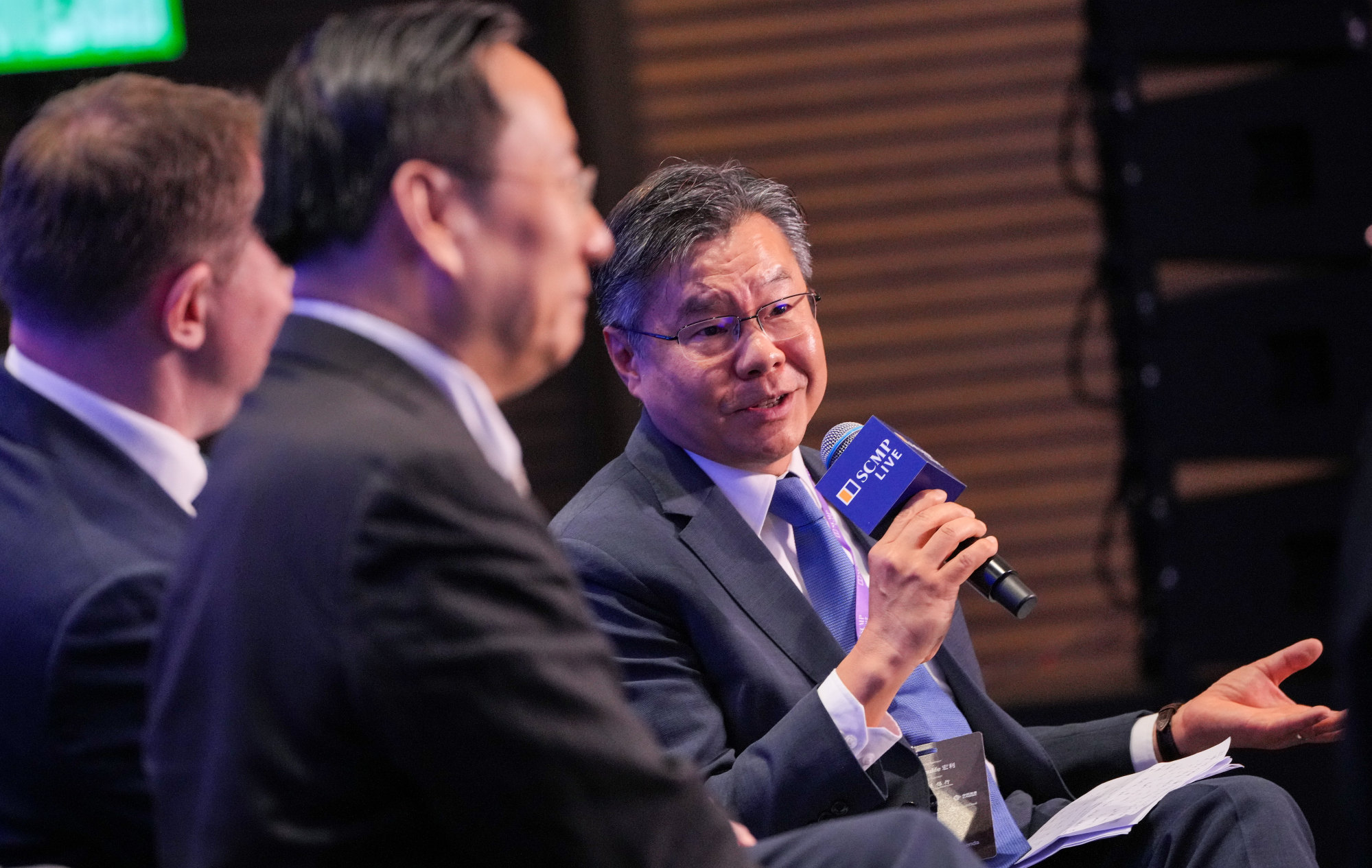
Hong Kong urged to reinvent ‘superconnector’ role to link China to Global South
- Panellists at South China Morning Post’s annual China Conference also express confidence in unique advantages enjoyed by Hong Kong
At the South China Morning Post’s annual China Conference on Thursday, panellists expressed strong confidence in Hong Kong’s unique advantages in finance and technological research, calling on the city to preserve its characteristics of professionalism and high ethical standards.
Eric Li, chairman and managing partner of Chengwei Capital, said Hong Kong’s role as a superconnector, which capitalised on linking China to the West, needed to change to adapt to future globalisation trends.
“The relationship between China and the West is in some trouble,” he said.
“So as a result, I think, Hong Kong’s connector role should be to connect China with a larger world, namely the Global South, outside the small garden and tall walls if you will.”
Li spoke alongside three other guests at a panel titled “China’s economic reckoning: impact on Hong Kong, Asia and the world”, with most speakers agreeing that US-China tensions would remain unchanged regardless of who ended up in the White House at the end of the year.
“I think both [US presidential candidates] will pursue very aggressive, and even containment, policies towards China, [but] their tactics will be very different,” he said.
The coming election is widely expected to be a rematch between incumbent US President Joe Biden and former leader Donald Trump, who was defeated in the 2020 leadership race.
Fellow speaker Victor Gao, chairman of the China Energy Security Institute, said Hong Kong should fully embrace changes resulting from the growing US-China rivalry and reposition itself to ensure more sustainable prosperity.
Gao said the US was suffering from what he called “Tonya Harding syndrome”, accusing the country of trying to “whack China out of the competition”.
“You know Tonya Harding was a figure skating champion of the United States. And she and her husband and their associates managed to whack the kneecap of [fellow US skater] Nancy Kerrigan to try to put her out of the competition,” Gao said, referring to the attack in 1994.
“I think the United States is suffering from this Tonya Harding syndrome. They want to whack China out of the competition. This is mission impossible.”
Gao, a former interpreter for late paramount leader Deng Xiaoping, considered to be the “chief architect” of mainland China’s reform and opening up, also recommended the city consider changing Hong Kong International Airport’s name to “Deng Xiaoping airport”.
“I think if Hong Kong has the ability to do that, especially getting approval from the central government, this will make Hong Kong a greater city. It will put Hong Kong in greater prominence on the map of the world,” he said.
Manulife Hong Kong and Macau chief executive Patrick Graham said Hong Kong’s role as the country’s most international city and its connection with the rest of the world, not just the West, was “an advantage that no one else can replicate”.
Graham expressed optimism over Hong Kong’s prospects, citing the city’s GDP growth of about 3 per cent last year, which was higher than levels for most developed markets.

Jimmy Jim, managing executive officer and head of global markets at the Industrial and Commercial Bank of China (Asia), called on the city to preserve its professionalism, ethical standards and way of doing things to keep it distinct from cities on the mainland, in a bid to play its superconnector role well.
Another way for Hong Kong to improve on its role as a superconnector was to “give our honest feedback to regulators in the Chinese mainland”, he added.
“Synergy with China’s [advancement] will only come when we combine our skill sets and our international ties with the central government’s policies,” Jim said.
“That’s why Hong Kong is the third most preferred city globally [for arbitration].”
The lawyer also encouraged Hongkongers not to consider the city as a stand-alone unit in terms of economic development, but instead as part of the bay area, which enjoyed greater development prospects.
The bay area is a national development blueprint that seeks to link Hong Kong, Macau and nine mainland cities in Guangdong province into a new economic powerhouse.

